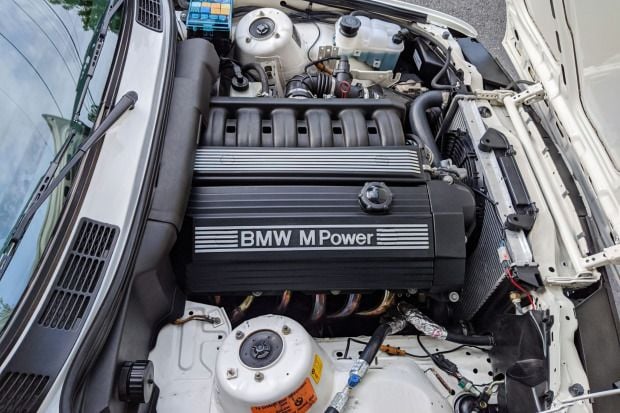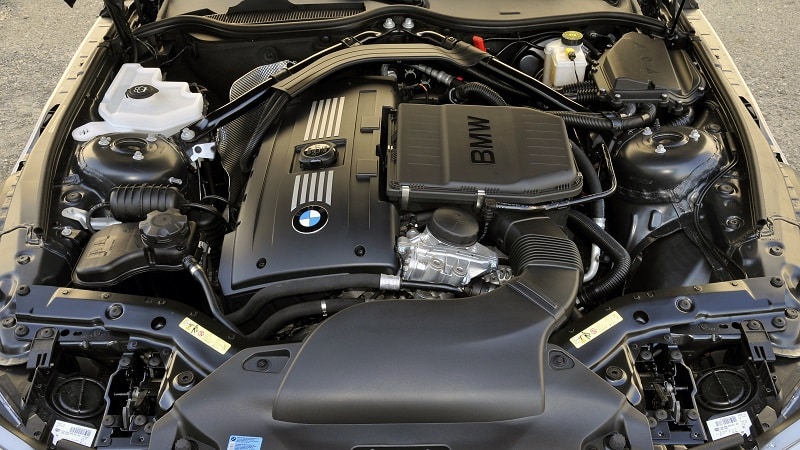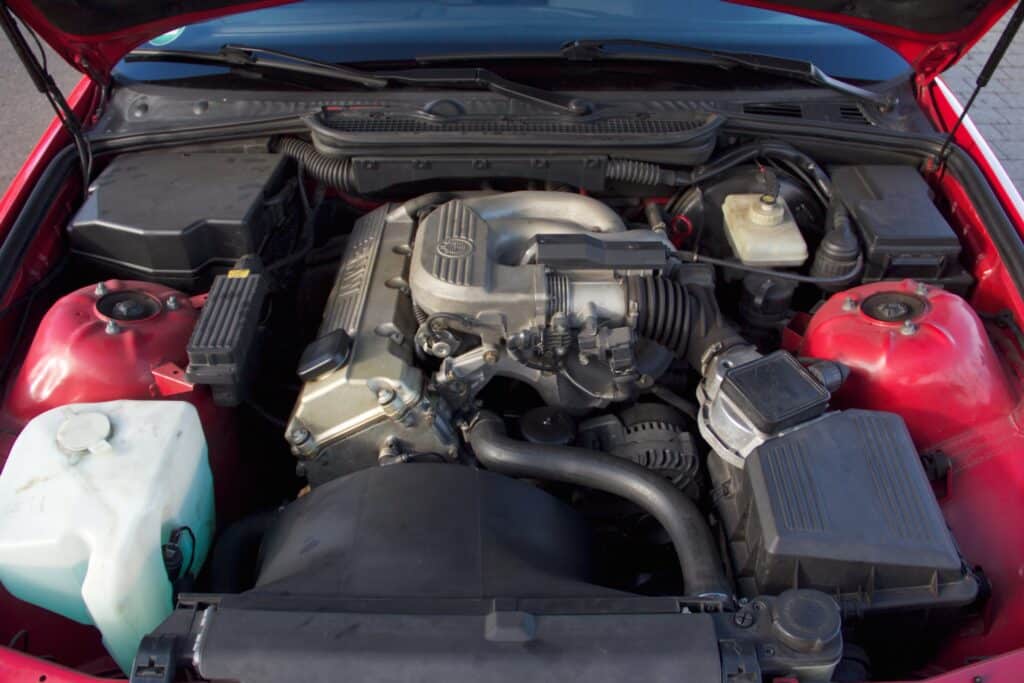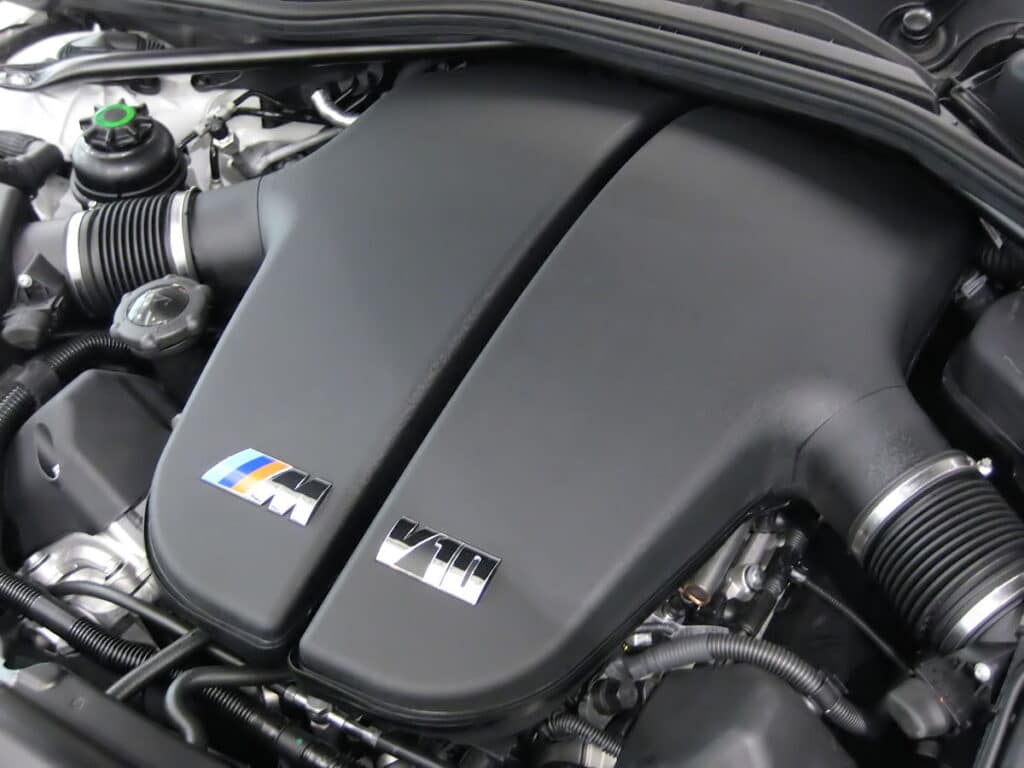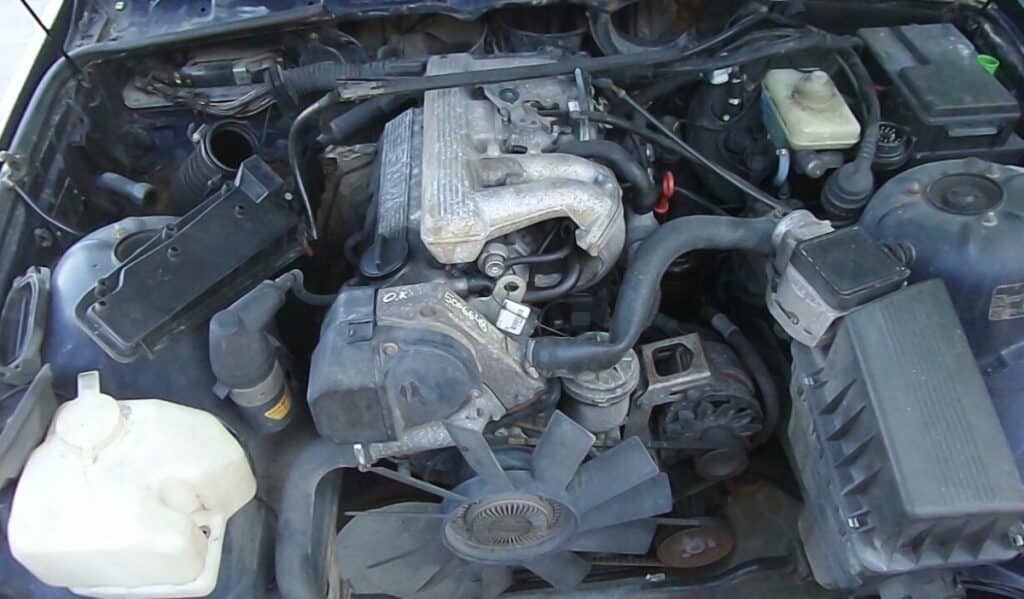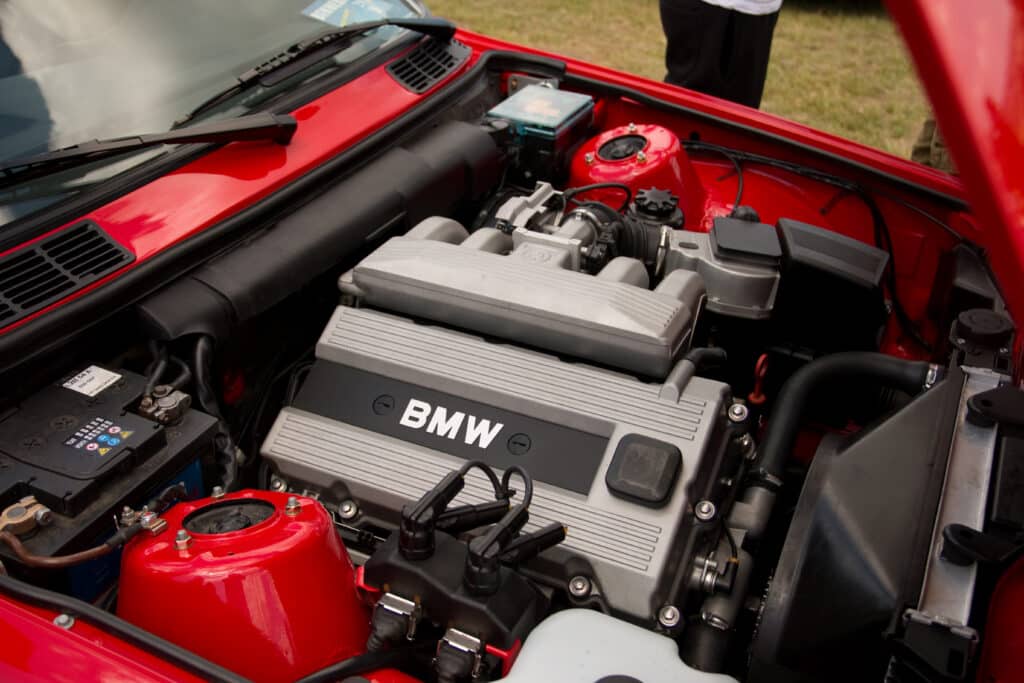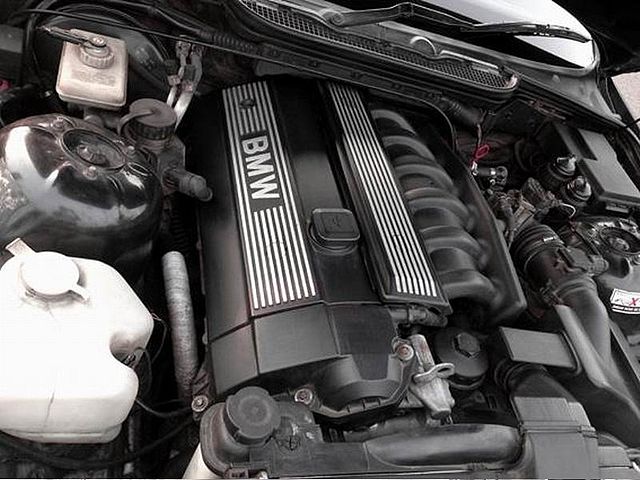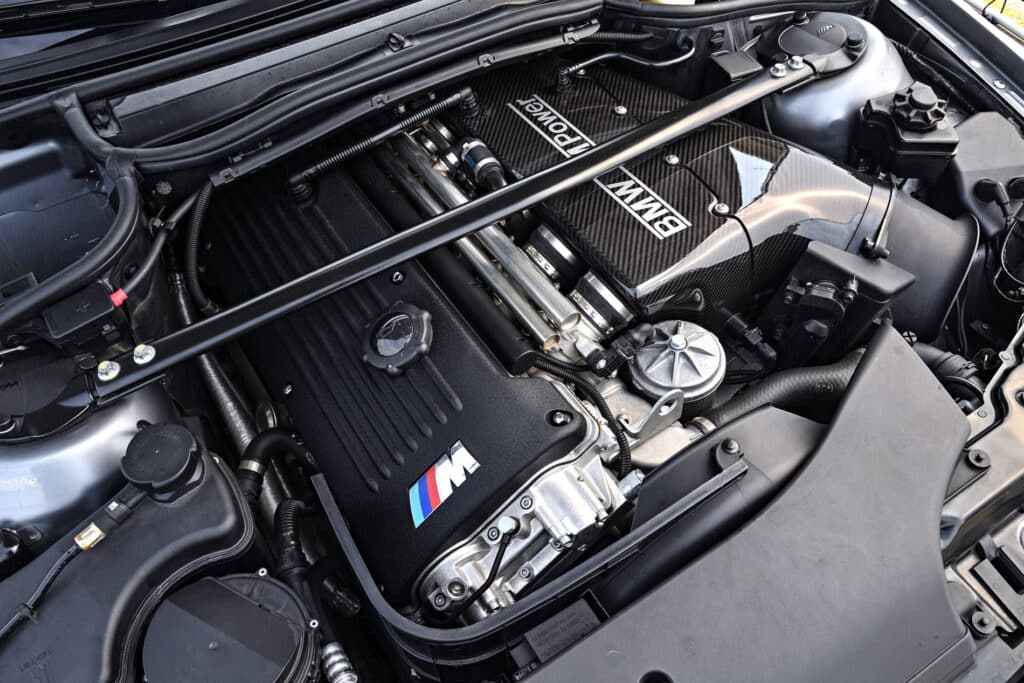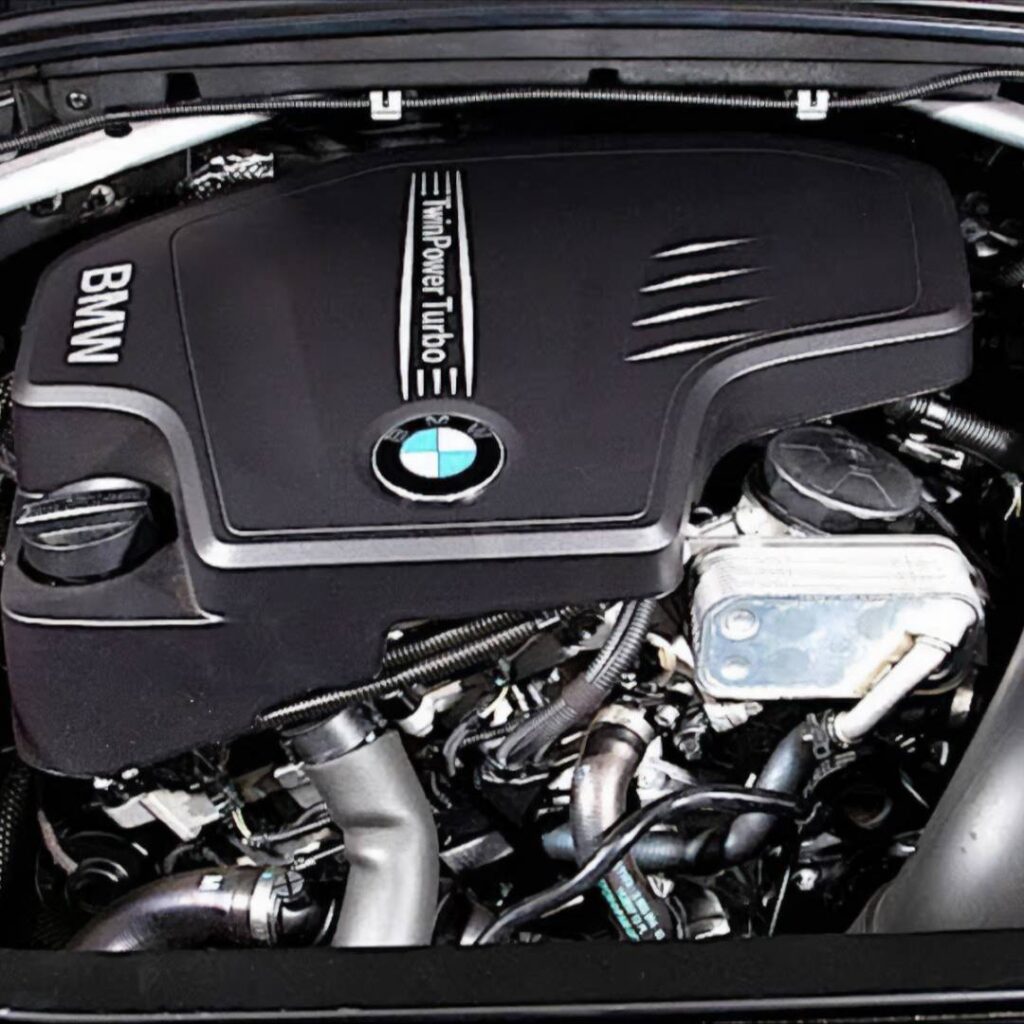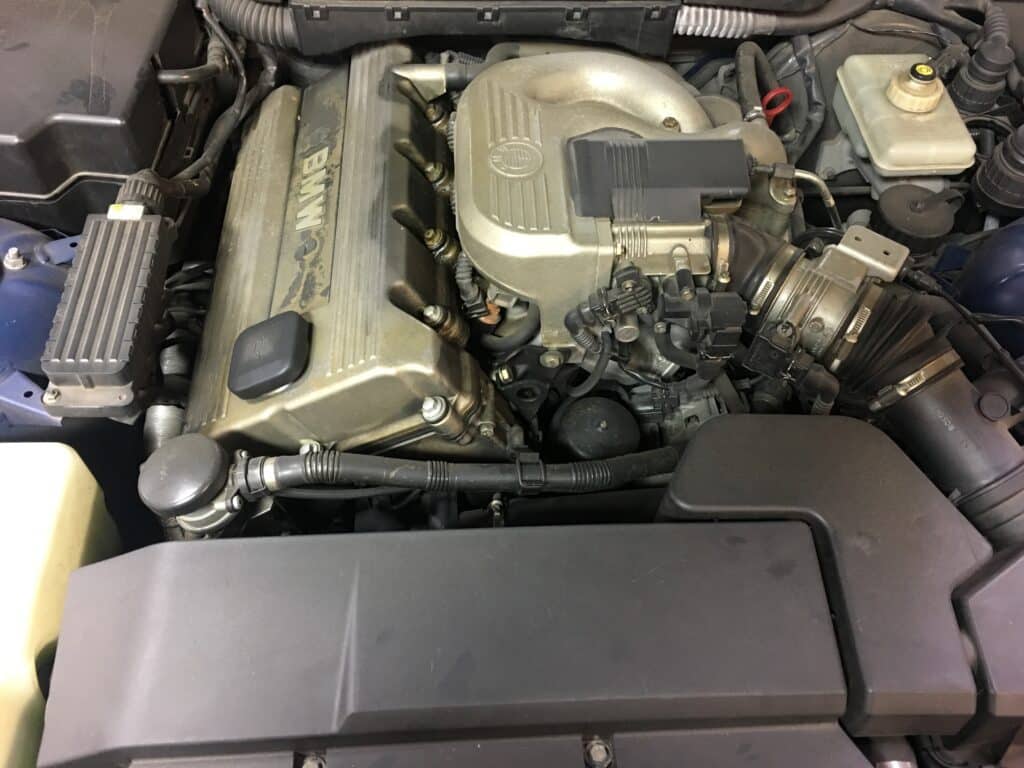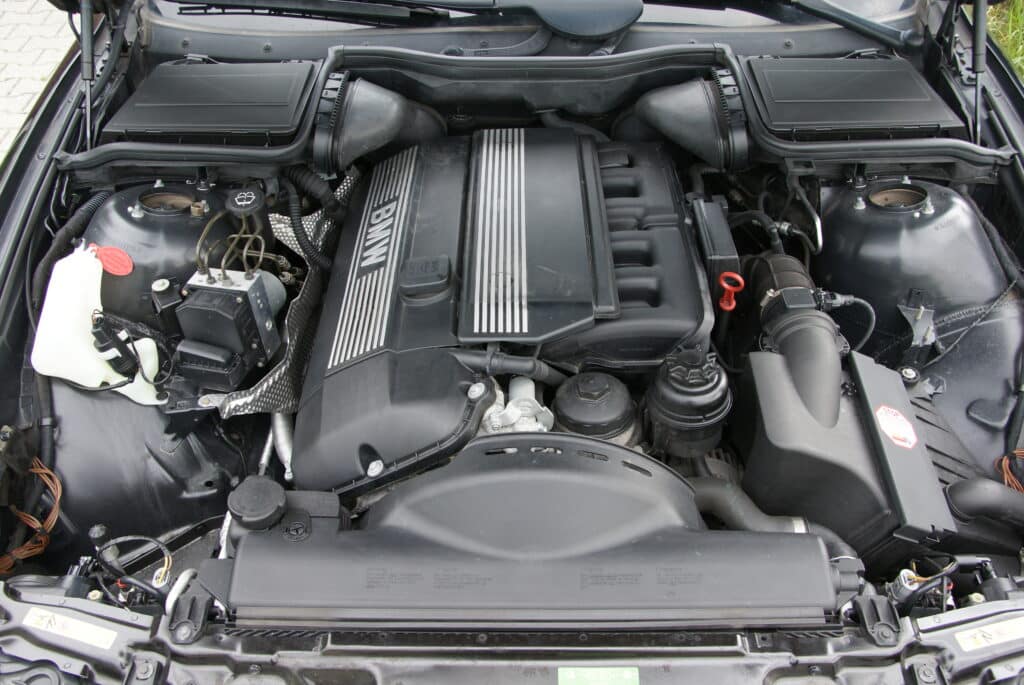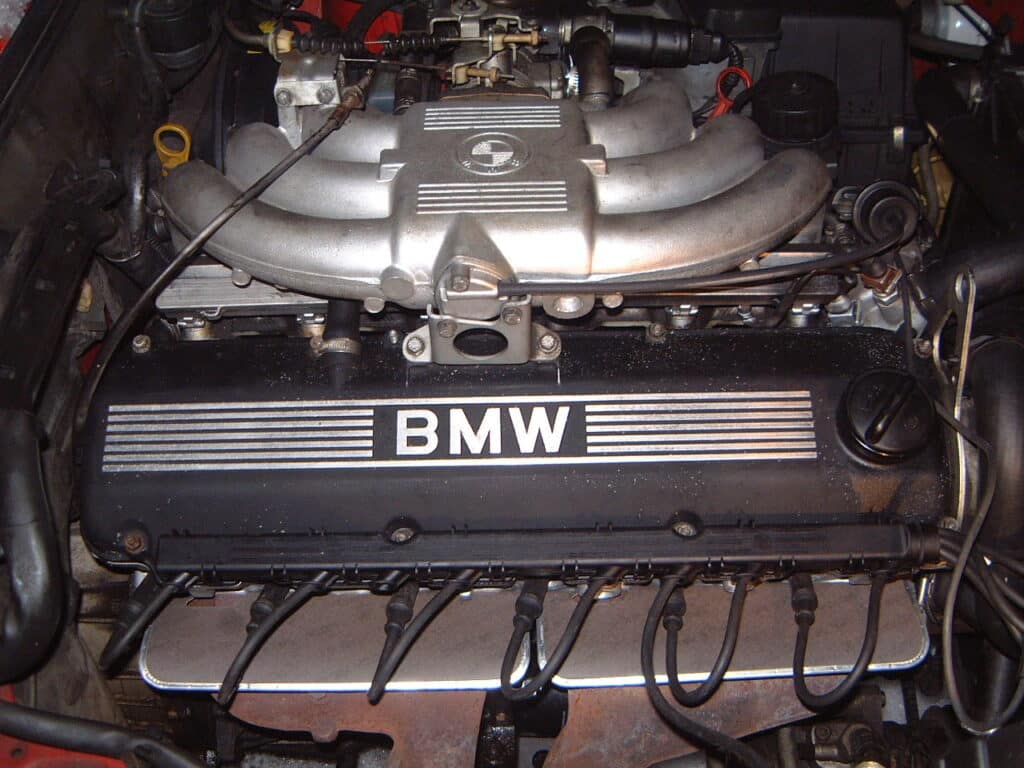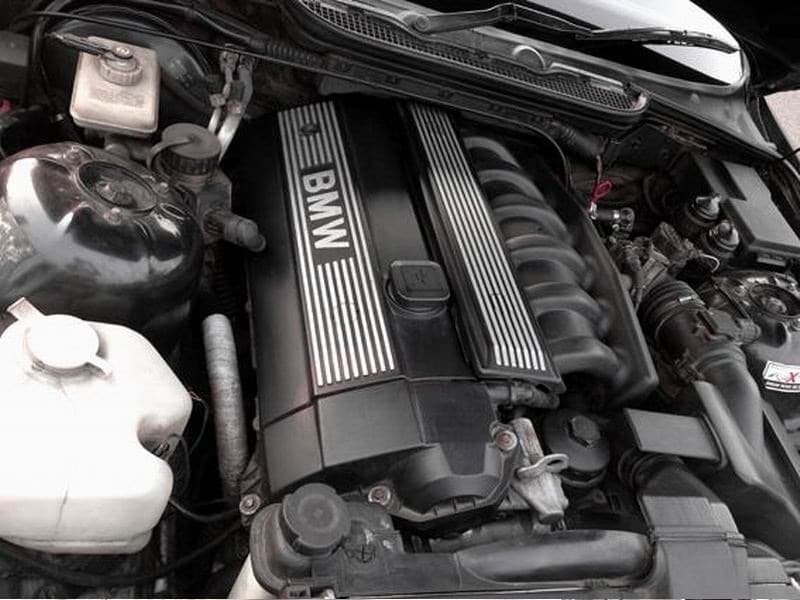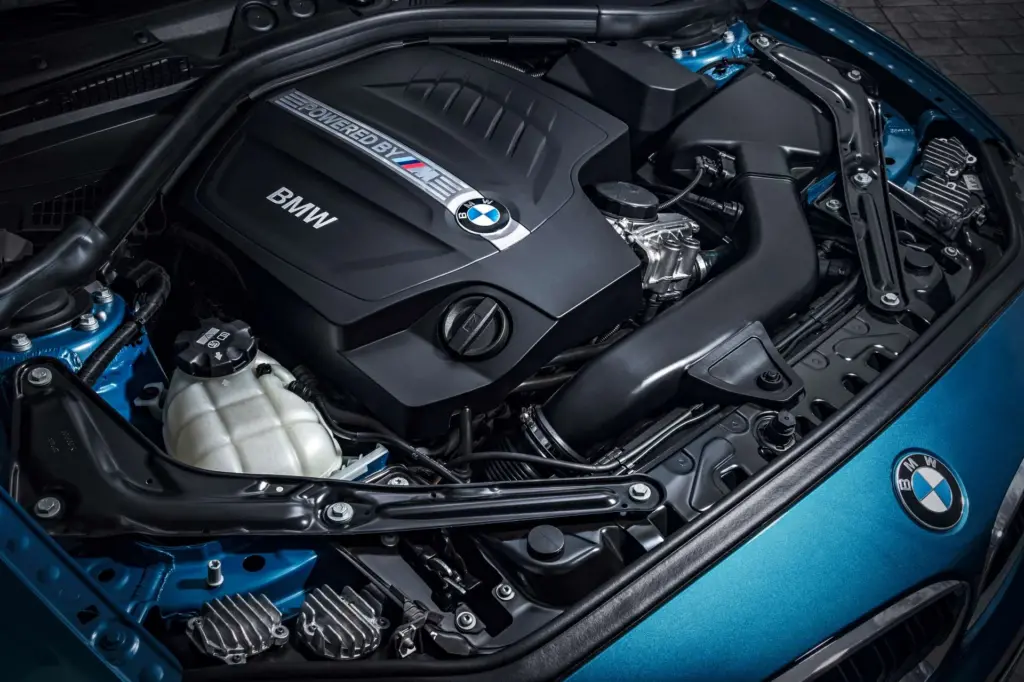The BMW M50B20 engine is a testament to BMW’s commitment to precision engineering and performance. Launched in the early 1990s, this 2.0-liter inline-six engine marked a new era for BMW’s mid-range vehicles, offering a balance of power and efficiency. As part of the M50 family, which was the first to utilize the VANOS system—BMW’s variable valve timing technology—the M50B20 delivered smoother acceleration and improved fuel economy over its predecessors.
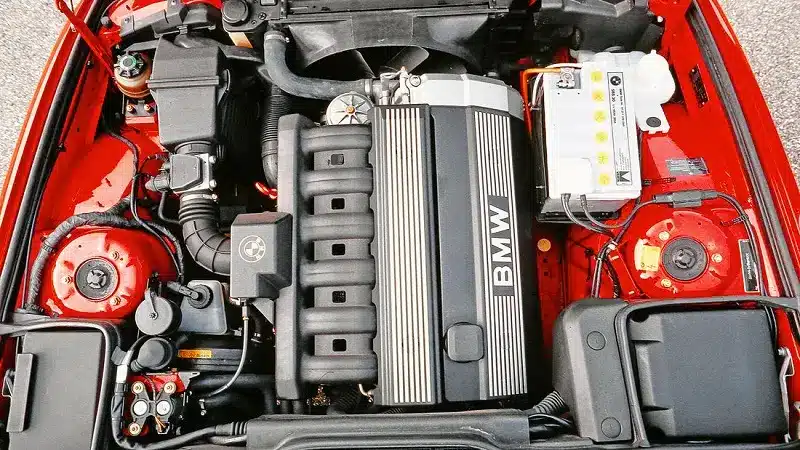
Its deployment across various models, including the popular 3 Series and 5 Series, signified BMW’s push to standardize performance across its lineup. The engine’s design incorporated a cast-iron block and aluminum head, contributing to its durability and longevity. With a power output ranging from 147 hp to 156 hp, depending on the variant, it provided a spirited driving experience characteristic of the brand.
The M50B20 was not just a step forward in terms of power; it was also part of BMW’s efforts to meet stricter emission standards without sacrificing the driving dynamics for which they were known. This engine laid the groundwork for future innovations in BMW’s engine technology and remains a significant chapter in the marque’s storied history in automotive engineering.
BMW M50B20 Engine Specs
The BMW M50B20 engine, part of the M50 family, was manufactured by the Munich Plant from 1990 to 1996. This straight-6 engine is recognized for its durability and was a staple in various BMW models throughout the early 90s.
Here are the key specifications:
- Manufacturer: Munich Plant
- Production Years: 1990-1996
- Cylinder Block Material: Cast Iron
- Configuration: Straight-6
- Valvetrain: DOHC, 4 valves per cylinder
- Piston Stroke: 66 mm (2.6 inches)
- Cylinder Bore: 80 mm (3.15 inches)
- Compression Ratio: 10.5; 11 (TU – Technical Update version)
- Displacement: 1991 cc (121.5 cu in)
- Power Output: 150 HP at 6,000 rpm; 150 HP at 5,900 rpm (TU)
- Torque Output: 190 Nm (140 lb·ft) at 4,700 rpm; 190 Nm (140 lb·ft) at 4,200 rpm (TU)
- Redline: 6,500 rpm
- HP per Liter: 75.3
- Fuel Type: Gasoline
- Engine Control Unit (ECU): Bosch Motronic 3.1; Siemens MS40.0; Siemens MS40.1 (TU)
| Specification | Detail |
|---|---|
| Manufacturer | Munich Plant |
| Production Years | 1990-1996 |
| Block Material | Cast Iron |
| Configuration | Straight-6 |
| Valvetrain | DOHC, 4 valves/cyl |
| Stroke | 66 mm (2.6″) |
| Bore | 80 mm (3.15″) |
| Compression Ratio | 10.5; 11 (TU) |
| Displacement | 1991 cc |
| Power Output | 150 HP at 6,000 rpm (150 HP at 5,900 rpm TU) |
| Torque Output | 190 Nm at 4,700 rpm (190 Nm at 4,200 rpm TU) |
| Redline | 6,500 rpm |
| HP/Liter | 75.3 |
| Fuel Type | Gasoline |
| ECU | Bosch Motronic 3.1; Siemens MS40.0; Siemens MS40.1 (TU) |
The M50B20 progressed from its predecessors, offering a higher compression ratio and improved power output. The Technical Update (TU) variant introduced in the mid-90s featured slight tweaks to the engine management system and power delivery, showcasing BMW’s commitment to refinement and performance improvement.
BMW M50B20 Engine Performance
The BMW M50B20 engine represents BMW’s engineering prowess, delivering a balance of performance and smooth operation. It stands out for its specific horsepower and torque outputs, which make it quite capable for its size.
Horsepower and Torque Outputs
The M50B20 engine delivers a power output of 150 horsepower at 6,000 rpm and a torque of 190 Nm (140 lb-ft) at 4,700 rpm. This power level is consistent with the needs of drivers who prioritize a responsive driving experience without demanding excessive fuel consumption.
The Technical Update (TU) version slightly modifies the torque delivery, offering the same 190 Nm but at a lower rpm of 4,200, enhancing the engine’s responsiveness at lower speeds.
Engine Firing Order
The firing order of an engine is crucial for its balance, performance, and smoothness. For the M50B20, the firing order is 1-5-3-6-2-4. This sequence is carefully designed to minimize vibration and optimize the engine’s running smoothness, which is particularly important for in-line 6 engines known for their natural balance and refined operation.
Spark Plugs and Gap Settings
For optimal performance, the M50B20 engine requires specific spark plugs designed to withstand its combustion environment and firing pressures. While the exact model of the spark plug can vary depending on the vehicle’s specific model and year, what remains constant is the need for a precise gap setting.
The recommended spark plug gap for the M50B20 engine is typically around 0.7 to 0.8 mm. This gap setting is critical for ensuring a strong and consistent spark, guaranteeing smooth ignition and combustion cycles. Incorrect gap settings can lead to misfires, reduced fuel efficiency, and increased emissions.
Regular maintenance of spark plugs is also a part of ensuring the M50B20’s performance. Over time, spark plugs can wear down, resulting in a larger gap and a weaker spark. Thus, checking and replacing spark plugs regularly is key to maintaining the engine’s performance and efficiency.
In summary, the BMW M50B20 represents a remarkable fusion of horsepower and torque, especially considering it’s a naturally aspirated engine from its era. Its seamless performance owes itself to a meticulously calculated firing sequence while using precisely spaced spark plugs ensures optimal combustion efficiency in each cycle.
This engine is a testament to BMW’s unwavering commitment to crafting powerplants that deliver impressive performance while upholding refinement and reliability. For those fortunate enough to own vehicles equipped with the M50B20 they can anticipate a driving experience that perfectly embodies the distinctive essence of the BMW brand – both exhilarating and refined.
The meticulous design and engineering of this engine have allowed it to endure the test of time, with numerous units still running strong today, offering their owners a spirited and enjoyable driving experience.
Fuel Efficiency and Consumption of the BMW M50B20 Engine
The BMW M50B20 engine, while known for its smooth power delivery and performance, also manages to deliver reasonable fuel efficiency for a 6-cylinder engine of its era.
The balance between performance and fuel economy is a hallmark of BMW engineering.
Average MPG and Influencing Factors
On average, the M50B20 engine achieves around 20 to 30 miles per gallon (MPG), depending on various factors. These figures can fluctuate based on driving habits, maintenance levels, vehicle load, and environmental conditions. For instance, frequent short trips, aggressive driving, and carrying heavy loads can significantly reduce fuel economy.
Additionally, driving conditions such as urban stop-start traffic versus highway cruising have a pronounced effect on MPG, with the latter typically yielding better fuel efficiency.
Regular vehicle maintenance is a critical factor affecting the M50B20’s fuel consumption. A well-maintained engine, with timely oil changes, proper tire inflation, and a clean air filter, will operate more efficiently. Furthermore, the use of the recommended grade of gasoline is essential for maintaining the engine’s designed fuel efficiency.
Tips for Improving Fuel Efficiency
To enhance the fuel efficiency of the M50B20 engine, consider the following tips:
- Drive Smoothly: Accelerate gently and avoid unnecessary hard braking. Use cruise control where possible to maintain a consistent speed.
- Regular Maintenance: Follow the manufacturer’s maintenance schedule. Keep the engine tuned, replace the air filter regularly, and use the recommended oil grade.
- Tire Pressure: Keep the tires inflated to the correct pressure. Under-inflated tires increase rolling resistance and fuel consumption.
- Weight Reduction: Remove unnecessary items from the car. Extra weight demands more power, leading to increased fuel consumption.
- Use of Features: Minimize the use of air conditioning and other power-draining features when not necessary.
- Fuel Quality: Use the correct octane fuel as recommended by BMW. Higher octane fuels can improve performance and efficiency in engines designed for them.
- Driving Environment: Plan trips to avoid heavy traffic and choose routes with fewer stops and starts.
- Gear Shifting: For manual transmissions, shift up early to keep the RPMs lower, which can help save fuel.
By adhering to these strategies, drivers can maximize their M50B20’s fuel efficiency, ensuring that the engine’s performance does not come at an unnecessary cost at the pump. These practices not only contribute to cost savings but also help in reducing the environmental impact by lowering emissions.
Overall, the M50B20’s fuel economy is respectable for its class, and with the right driving habits and maintenance, it can be an economical choice for those who appreciate the driving dynamics of a BMW. It is the attention to detail in these areas that can make a noticeable difference in the fuel consumption of this classic powerplant.
With conscientious care, the M50B20 can continue to deliver its blend of performance and efficiency for many miles to come.
BMW M50B20 Engine Oil Capacity
The BMW M50B20 engine requires 6 quarts of 5W-30 oil with a filter replacement.
The BMW M50B20 engine’s oil system plays a crucial role in ensuring the longevity and reliability of the powerplant. Proper maintenance of the oil system is paramount for the engine’s performance and health.
Oil Capacity and Recommended Oil Type
The M50B20 engine has an oil capacity of approximately 5.7 liters (6 quarts) when including the filter. BMW recommends using synthetic oil that meets their Longlife-01 specification for optimal performance and protection.
The common viscosity grades suitable for this engine are 5W-30, 5W-40, and 10W-40, which provide the right balance of thickness and flow at the engine’s operating temperatures.
Using the correct type of oil is critical for the M50B20 engine. Synthetic oils are designed to provide better chemical stability, higher temperature resistance, and more robust performance under various driving conditions than conventional oils.
They can also contribute to improved fuel efficiency and reduced engine wear over time, which is particularly important for engines like the M50B20, which may operate with higher mileage.
Oil Change Intervals and Recommendations
BMW traditionally recommended oil change intervals of approximately 15,000 miles (24,000 kilometers) for the M50B20 engine when using synthetic oil.
However, many enthusiasts and professional mechanics suggest a more conservative interval of 7,500 to 10,000 miles (12,000 to 16,000 kilometers) to ensure the engine remains in top condition, especially as the engine ages.
Frequent oil changes remove contaminants that can accumulate in the oil over time, such as combustion by-products, moisture, and microscopic metal particles. These contaminants can cause corrosion and wear, reducing the engine’s lifespan. It is also recommended to replace the oil filter with every oil change to ensure the filtration system is operating efficiently.
For drivers who frequently encounter severe driving conditions, such as stop-and-go traffic, short trips that don’t allow the engine to reach optimal operating temperatures, or driving in extreme temperatures, more frequent oil changes are advised. These conditions can cause oil to degrade faster, necessitating more frequent replacements to maintain engine protection.
Additionally, it is vital to regularly check the oil level and top it off as necessary. A low oil level can lead to increased engine wear and potential damage. The M50B20 engine has a dipstick to monitor the oil level easily. Keeping the oil at the proper level ensures adequate lubrication and cooling of engine components.
For DIY enthusiasts, changing the oil in an M50B20 engine is a straightforward process, but it requires attention to detail. Always use a high-quality oil filter and ensure the oil drain plug and filter are properly tightened to avoid leaks. Proper disposal of the used oil and filter is also important for environmental protection.
Cooling System
The cooling system of the BMW M50B20 is integral to the engine’s operation, playing a key role in maintaining optimal temperatures and preventing overheating, which can lead to severe damage.
Engine Coolant Specifications
For the BMW M50B20 engine, the manufacturer specifies the use of a coolant that meets their antifreeze specifications. This is typically a 50/50 mix of antifreeze and distilled water, which ensures proper freezing and boiling points suitable for a wide range of climates and driving conditions.
The antifreeze not only helps regulate the engine temperature but also contains corrosion inhibitors that protect the engine’s internal components from rust and scale buildup.
Coolant Capacity and Change Guidelines
The M50B20 engine has a cooling system capacity of approximately 8.5 liters (9 quarts). It is crucial to maintain this level to ensure there is enough coolant to circulate through the engine and radiator, facilitating effective heat exchange.
BMW’s guideline for coolant change intervals is generally every two to three years, regardless of mileage. However, many mechanics advocate for more frequent changes to ensure maximum protection, especially if the vehicle is subjected to harsh driving conditions or operates in extreme environments.
Regularly checking the coolant level and condition is also essential. If the coolant appears discolored or contains particles, it may indicate corrosion or a failing component within the cooling system.
When replacing the coolant, it is crucial to flush the system thoroughly to eliminate the old coolant and any impurities. This is essential to ensure that the new coolant functions effectively in safeguarding the engine. To avoid mineral deposits from tap water that can accumulate in the cooling system and hinder its performance, always use distilled water.
Timing System of the BMW M50B20 Engine
Understanding the timing system of the BMW M50B20 is essential for ensuring the engine runs smoothly and efficiently. The timing system plays a pivotal role in synchronizing the engine’s valves with the motion of the pistons, and whether the engine uses a timing belt or chain can impact maintenance schedules.
Timing Belt or Chain Information

| Specification | Detail |
|---|---|
| Type | Timing Chain |
| Material | Metal |
| Replacement Interval | Not applicable; designed to last the lifetime of the engine |
| Inspection Recommendation | Every service interval or in case of performance issues |
The M50B20 engine is equipped with a timing chain rather than a timing belt. Timing chains are known for their durability and are typically designed to last the lifetime of the engine, which means they generally do not require regular replacement.
However, it is not uncommon for timing chains to stretch or guides and tensioners to wear out, especially as the engine accriles high mileage. This can lead to a timing chain that may become noisy or, in worst-case scenarios, jump a tooth on the sprocket, leading to engine timing issues.
Interference vs. Non-Interference Design
| Specification | Detail |
|---|---|
| Design Type | Interference |
| Consequence of Timing Failure | Potential engine damage |
| Recommended Action in Event of Timing Issue | Immediate engine shutdown and professional inspection |
The BMW M50B20 operates on an interference design. This means that the space between the pistons and valves is minimal, and if the timing chain fails or jumps time, the pistons can collide with the valves, causing significant engine damage. Therefore, if there is any indication of a timing issue, it is critical to stop the engine immediately and seek professional assistance.
Interference engines are often chosen for their compact design and the performance benefits they provide, including higher compression ratios and improved efficiency. However, the downside is the potential for engine damage if the timing system fails.
Regular inspections and maintenance of the timing system components, like the chain tensioner and guides, can help prevent such catastrophic failures.
Apart from the preventive measures, it is also important to keep an ear out for any unusual sounds coming from the engine, like rattling or knocking, as these may indicate that the timing system needs some attention. If you notice any of these symptoms, it is highly recommended that you consult a qualified mechanic who can diagnose the issue and perform the necessary repairs.
Engine Air Filter
The engine air filter is a critical component in maintaining the health of the BMW M50B20 engine. Its primary role is to clean the air entering the engine for combustion, preventing debris, dust, and other contaminants from damaging the engine’s internals.
Air Filter Specifications and Replacement Intervals
Maintaining a clean air filter is crucial for the performance and longevity of the engine. A clogged or dirty air filter can lead to reduced horsepower, lower fuel economy, and, in extreme cases, engine misfires.
BMW recommends regular inspection and replacement of the air filter to ensure optimal engine performance.
| Specification | Detail |
|---|---|
| Filter Type | Panel air filter |
| Material | High-flow synthetic fiber |
| Replacement Interval | Every 30,000 to 45,000 miles |
| Inspection Recommendation | During regular service intervals or if performance issues arise |
It’s suggested to replace the air filter more frequently if the vehicle is operated in dusty environments or used for heavy-duty applications. Some aftermarket options offer high-performance air filters that claim to increase horsepower and improve acceleration; however, it’s vital to choose a filter that meets or exceeds the OEM specifications to ensure proper engine protection.
Regular checks are a part of routine maintenance and should be done more frequently if you notice symptoms like unusual engine sounds, a decrease in acceleration, or a drop in fuel efficiency. These could indicate a dirty air filter.
Replacing the air filter is a straightforward process and can often be done without the need for professional tools or assistance. However, if you’re not comfortable performing the replacement yourself, a professional mechanic can complete the service quickly.
It is important to note that the air filter plays a crucial role in protecting the BMW M50B20 engine from airborne contaminants. In order to maintain the engine’s performance and prevent potential issues related to airflow restriction, it is advisable to adhere to the recommended replacement intervals and choose a quality air filter.
Regular maintenance, coupled with timely replacements, ensures that your BMW continues to perform as expected, ultimately safeguarding your investment in the long run.
M50B20 Engine Problems And Reliability
The BMW M50B20 engine, renowned for its durability and performance, has still faced its share of common issues over the years. Recognizing these problems and understanding the engine’s reliability are key to long-term maintenance.
Common Issues and Troubleshooting
| Issue | Symptoms | Suggested Troubleshooting |
|---|---|---|
| Water Pump Failure | Overheating, coolant leak | Replacement of water pump and check for leaks |
| Oil Leaks | Oil under the vehicle, burning smell | Gasket and seal inspection and replacement |
| Vanos System Failure | Loss of power, poor idle | Inspection and replacement of Vanos unit |
Vanos System Failure: BMW’s Vanos system is prone to failure, often indicated by a loss of power and poor idling. This variable valve timing system is crucial for engine performance. Once you detect issues, a mechanic should inspect the Vanos unit, and it may need replacement.
Water Pump Failure: The water pump is another weak point. Symptoms include overheating and visible coolant leaks. A defective water pump requires immediate attention to prevent engine damage due to overheating.
Oil Leaks: Common in older engines, oil leaks usually stem from degraded gaskets and seals. Regular inspections can identify the need for replacements before major issues arise.
Overheating: This can be caused by a malfunctioning radiator, water pump, thermostat, the presence of air pockets in the cooling system, or a faulty radiator cap.
Floating RPM: This can be caused by a failure of the valve or idle throttle position sensor.
Engine Lifespan and Reliability
The M50B20 is generally considered a robust engine with a lifespan that can exceed 200,000 miles if well-maintained. Regular service and preventive maintenance are key to achieving and even surpassing this mileage.
| Factor | Detail |
|---|---|
| Average Lifespan | 200,000+ miles with proper maintenance |
| Maintenance Key Points | Regular oil changes, cooling system service, and timely replacement of wear items like the timing belt/chain and water pump |
Preventive Maintenance: Regular oil changes using the manufacturer-recommended oil type and weight, cooling system servicing, and replacing wear items like the timing belt/chain and water pump are vital.
Reliability: The M50B20’s reliability is well-regarded, with many engines reaching high mileage without major issues. However, like any engine, it’s susceptible to wear and tear, especially if maintenance is neglected.
Professional Insight: Sources like BMW forums and BMW specialists can provide a wealth of knowledge and real-world experiences from owners and mechanics who have worked extensively with the M50B20 engine.
Engine Tuning and Upgrades for the BMW M50B20 Engine
When it comes to enhancing the performance of the BMW M50B20 engine, there are several popular modifications that enthusiasts and professionals alike often consider.
However, it’s crucial to understand the impact these modifications can have on engine reliability.
Popular Modifications for Performance Boost
| Modification | Performance Boost | Reliability Impact |
|---|---|---|
| ECU Remapping | Increased horsepower and torque | Can strain engine if not done professionally |
| Intake and Exhaust Upgrades | Better airflow, slight power increase | Generally safe, provided components are high-quality |
| Camshaft Replacement | Improved engine response and power | Can affect engine smoothness and idle if aggressive cams are used |
| Forced Induction (Turbocharging/Supercharging) | Significant power increase | High risk to engine reliability if not supported by other upgrades |
ECU Remapping: By remapping the engine control unit (ECU), you can achieve a noticeable increase in horsepower and torque. However, it’s vital that this is done by a professional to ensure that the engine isn’t pushed beyond its safe operating limits.
Intake and Exhaust Upgrades: Replacing the stock intake and exhaust systems with high-performance parts can improve airflow and slightly increase power. These modifications are generally reliable, but it’s important to use high-quality components to avoid issues like air leaks or premature failure.
Camshaft Replacement: Aftermarket camshafts can significantly improve engine response and power, especially at higher RPMs. However, aggressive cam profiles can lead to a rougher idle and may require additional tuning to ensure smooth operation.
Forced Induction: Adding a turbocharger or supercharger can dramatically increase the M50B20’s power output. This type of modification comes with a high risk to engine reliability and often requires a comprehensive upgrade to the fuel system, cooling system, and internal components to handle the increased stress.
Impact of Mods on Engine Reliability
Modifying an engine always comes with risks, particularly to its reliability. The degree of impact depends on several factors:
- Quality of Parts: High-quality, reputable brands tend to offer better performance and reliability.
- Installation and Tuning: Professional installation and careful tuning are essential to maintain engine integrity.
- Supporting Upgrades: Performance mods often necessitate additional upgrades to other engine systems to ensure overall reliability.
- Driving Habits: Aggressive driving can exacerbate the risks associated with engine mods.
Reliability After Mods:
| Modification | Risk Level | Mitigation Strategy |
|---|---|---|
| ECU Remapping | Moderate | Professional tuning, conservative power gains |
| Intake and Exhaust Upgrades | Low | Quality parts, correct installation |
| Camshaft Replacement | Moderate to High | Professional installation, compatibility check |
| Forced Induction | High | Comprehensive engine upgrades, expert tuning |
Enthusiasts should be aware that significant modifications can void warranties and potentially lead to more frequent repairs. It is essential to consider the trade-off between the desired performance gains and the potential for increased maintenance and repair costs.
FAQs
The BMW M50B20 engine is renowned for its performance and durability, but owners and enthusiasts often have questions regarding its operation and maintenance.
Here are some of the most common inquiries:
What is the typical lifespan of the M50B20 engine?
The M50B20 is known for its longevity. With proper maintenance, many have reached over 200,000 miles without major issues. However, lifespan can be affected by driving habits, maintenance quality, and the use of appropriate fluids and parts.
What are common problems with the M50B20 engine?
Some known issues include wear of the water pump, oil leaks from the gasket, and VANOS system failures. Regular inspections can help identify these problems early on.
Is the M50B20 an interference engine?
Yes, the M50B20 is an interference engine. This means that if the timing belt or chain fails, the valves can collide with the pistons, potentially causing significant engine damage.
What kind of oil should be used in the M50B20 engine?
BMW recommends using synthetic oil for the M50B20 engine, typically in the 5W-30 or 5W-40 grades, depending on climate and driving conditions.
How often should the oil be changed in the M50B20 engine?
Oil change intervals can vary based on the oil type and the car’s usage but are typically recommended every 5,000 to 7,500 miles for conventional oil, or up to 10,000 miles for high-quality synthetic oils.
Can the M50B20 engine be easily modified for better performance?
The M50B20 engine is quite receptive to modifications such as chip tuning, cold air intakes, and exhaust upgrades. However, any modification should be done considering the potential impacts on engine reliability and longevity.

